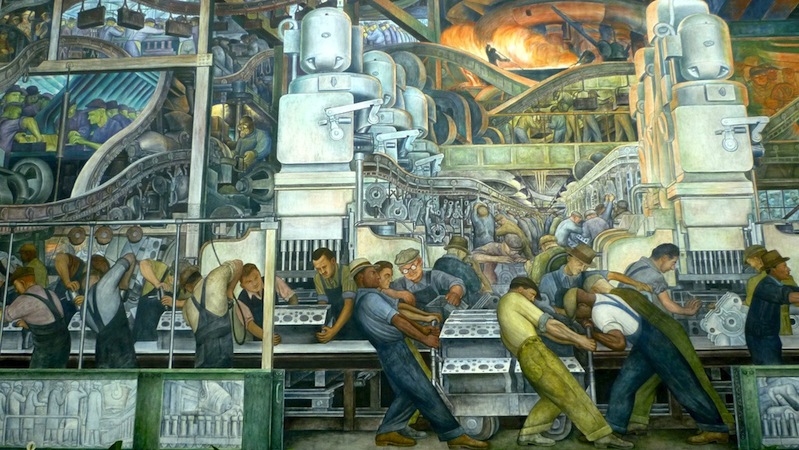
By Dr. Jon Rynn, Author of Manufacturing Green Prosperity, Praeger Books, 2010.
Why are Manufactured Goods Important?
1) Manufactured goods are necessary for trade. According to the World Trade Organization, 80% of interregional trade is in goods, and only 20% is in services. For the U.S., the statistics are about the same. That means that we need goods to trade for foreign goods, or we rack up a large and growing trade deficit, which the United States has been doing for many decades now. This will eventually threaten the value of the dollar; if the dollar becomes very cheap, imports will become very expensive, and the U.S. won’t have the capacity to replace imports. In addition, the global trade system has become very unbalanced, with many nations basing their own growth on growth of exports to the U.S., even though they keep taking dollars instead of goods. This state of affairs can not go on forever; even Ben Bernanke, the Chairman of the Federal Reserve, has said so.
2) Manufactured goods are crucial for the service industries. Even though about two-thirds of most economies are composed of service industries, these service industries are dependent on manufactured goods for their operation and for their own technological progress. For instance, the retail and warehousing industries, which comprise about 11 percent of American GNP (value-added), are in the business of selling manufactured goods. The airline industry, the telecommunications industry, and the software industry depend on airplanes, phones and broadcast equipment, and computers for both their existence and for their technological progress.
3) Each manufacturing job creates three other jobs. In the U.S., the Economic Policy Institute has found that each manufacturing job supports three other jobs in the wider economy, through something called “the multiplier effect.” That is, the wages from manufacturing employees are re-spent in other parts of the economy, because manufacturing adds so much value to the economy.
4) Economic growth depends on manufacturing. Manufacturing productivity, that is, the goods that are output from a specific amount of input, increases by about 3 percent each year in the U.S., year in and year out, because technological advances are always being made for factory machinery. By contrast, service industries either have very slow productivity growth or depend, directly or indirectly, on technological progress in machinery. In addition, since machines can make other machines, what is called exponential growth, as in quickly reproducing animal populations, can take place.
5) National power depends to a great extent on manufacturing power. Over the last 100 years, the “Great Powers”, or most powerful four or five countries, have controlled about 75 percent of global industrial machinery production.This is because industrial machinery is used both to generate national wealth and to produce military equipment. If all regions of the world had an independent capacity to produce manufactured goods, there would be little opportunity to intimidate and dominate countries. In fact, there would probably be fewer wars because global power would be balanced.
6) A world in which all regions had a strong manufacturing base would go far to eliminate poverty and war. Manufacturing creates middle class jobs that anchor a middle class economy. Unions thrive in manufacturing industries because it is easier for the employees to bargain. If all global regions have the power to create the wealth that comes with manufacturing, there will be less opportunity for wars to break out as a result of imbalances of power.
About Diego Rivera’s mural: The panel represented above is a portion of Rivera’s grand mural series at the Detroit Institute of Arts: “The Detroit Industry fresco cycle was conceived by Mexican muralist Diego Rivera (1886–1957) as a tribute to the city’s manufacturing base and labor force of the 1930s. Rivera completed the twenty-seven panel work in eleven months, from April 1932 to March 1933.” The section depicted shows not only social divisions but an industry tied to a then petroleum-based manufacturing technology. Today, Detroit and the industry attempt to diversify into greener cars with ongoing initiatives to bring more rail-based mass transit to this auto-centered city.